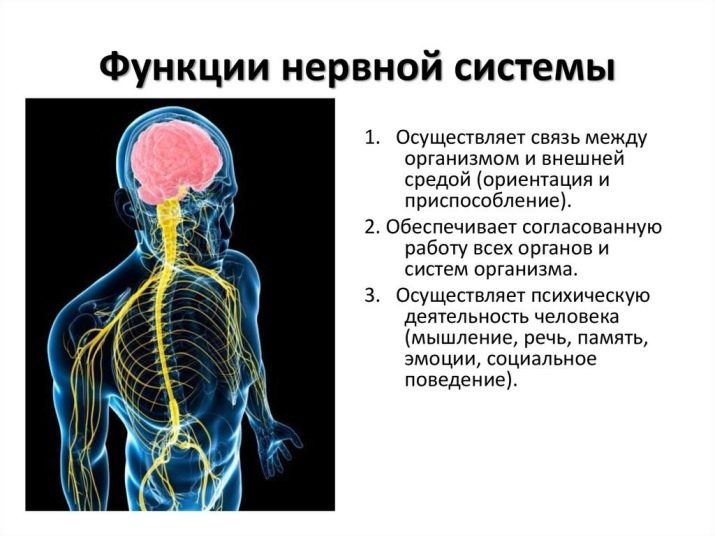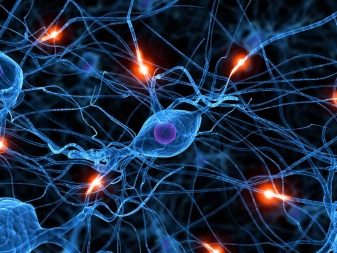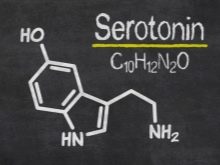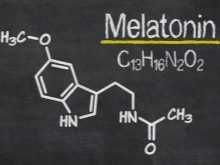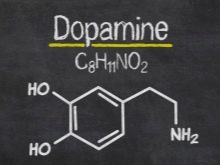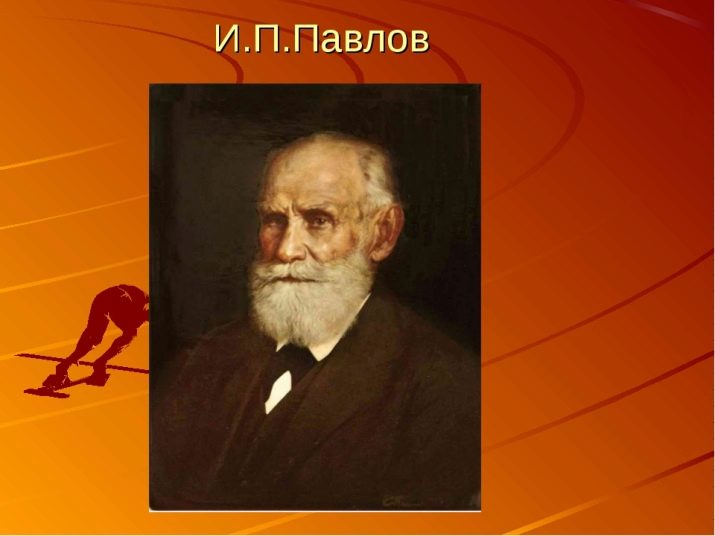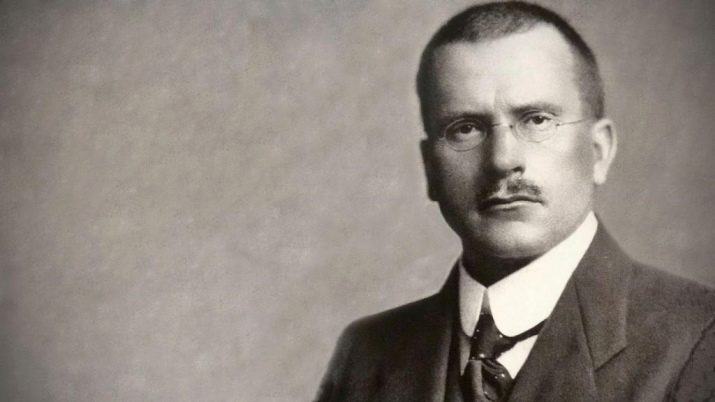Temperament and character: the difference of concepts and definition

“What a temperamental one!” We are talking about an emotional and loud-voiced person expressing his thoughts accompanied by violent gesticulation. “Look, with character!” - the relatives shake their heads over the child, flatly refusing to eat porridge or cut hair.
What is this - temperament? And how is it different from character? Or maybe it is the same thing? Let's try to figure it out, backing up our reasoning with the thoughts of eminent psychologists.
Definition
Before figuring out how one differs from the other, and what comes first - temperament or character, let us define both concepts.
Temperament in psychological science is called the set of psychodynamic qualities of a person, manifesting themselves in the reactions of his psyche, as well as how intense they are, what their speed and pace are. In another definition, you can choose this: temperament is a nature-determined propensity of a person for a certain type of behavior. It depends on this type whether a person is emotional, sensitive to the influence of the external world, impulsive or restrained, sociable, closed, easy for him to communicate with unfamiliar people or it causes difficulties.
As for the psychodynamic characteristics of human behavior, they are caused by higher nervous activity. Nerve processes have three main properties, their academician I. P. Pavlov revealed. To them he attributed strength, poise and mobility. It is their combination that provides the basis for the four types of temperament.
Rarely, when you can meet pure choleric or melancholic, the properties of two types are mixed more often in a person, but with one dominant.
To identify the individual's belonging to a particular type, one should take into account the manifestations in him of such temperament properties:
- sensitivity - that is, an indicator of what should be the least impact on a person from the outside, so that he responded to it;
- reactivity - the degree of how an involuntary reaction to any influence from within or from the outside is manifested - criticism (both constructive and not so much), loud cry, offensive phrases;
- activity is an indicator of the extent to which a person is involved in the external world and acts intensively in it, as far as he is persistent, focused and purposeful;
- what is more important for a person - external or internal factors or his aspirations and objectives depend on the ratio of reactivity and activity in a person;
- a counterbalance to plasticity and rigidity shows whether it is easy for a person to adapt to the external effects of circumstances or if he behaves inert;
- depending on the rate of reaction, it is determined how quickly mental reactions take place in a person, as well as speed of speech, abundance of gestures, mental acuity;
- the extraversion-introversion scale characterizes the factors on which a person’s reaction and actions depend - in an extrovert, they are directly related to external momentary impressions, and for an introvert - to images and thoughts that arise in his mind and have a relationship with past and future events;
- Emotional excitability shows the minimum impact on a person that is necessary for an emotional reaction to occur, as well as the amount of time it takes to occur.
With all of the above properties, psychologists distinguish 4 main types of temperament.
Sanguine
An individual with this type of temperament is highly reactive, but it balances activity. On what he is interested in, he reacts vividly and soon, his facial expressions are quite intense, like gesticulation. It is immediately noticeable in what mood he is, he is not able to hide his reaction to a situation or person. To all events occurring with him, gives a strong reaction - and no matter how significant it is. It is difficult for him to notice quiet sounds and weak light; in such conditions (in poor light) it is difficult for him to work.
Sanguine men are very efficient and have a large stock of energythat gives them the opportunity to do business without getting tired. Persons with this type of temperament can concentrate, easily switch from one task to another, have a flexible mind and resourcefulness. Sanguine people quickly speak and think quickly, are highly plastic - thanks to this they do not get stuck on one emotion for a long time. A child with this type of temperament will most quickly find friends in a new class, it is easy for him to meet and communicate. A person with a sanguine temperament has a high personal discipline, with age he learns to control the expression of emotions. Most often, sanguine persons are extroverts, since they react to external events, and not to the processes occurring within them.
Such people do not tend to worry for a long time because of what happened, look for the causes of the incident and engage in self-digging. Thanks to the plastic psyche, the sanguine person makes it easier than anyone else to switch to new events and impressions.
Choleric
With sanguine choleric people combines high reactivity, low sensitivity. However, the balance between activity and reactivity is disturbed in them, so choleric people are characterized by short temper, wildness, lack of patience and restraint. Despite the fact that the choleric person is most often an extrovert, he is very persistent, not inclined to easily “switch” from goal to goal. Cholerami tend to get stuck on getting the desired due to low ductility and high inertness (compared with sanguine). It takes time to switch the choleric's attention to another task.
Phlegmatic
Phlegmatic highly active, but have a low reactivity. In addition, these people are extremely stingy on the manifestation of emotions - it is difficult to wait from them as a great laugh, as well as a manifestation of sadness. Most often, the representatives of the phlegmatic type of temperament look imperturbable. During a general panic, it is the phlegmatic persons who remain calm, which often helps calm others. Mimicry and gestures from them are also stingy, you will not wait for interesting stories from such personalities.
Phlegmatic people have a hard time switching attention, especially if you need to do it quickly.besides, a sharp change in the situation also knocks them out of the rut. However, what phlegmatic can not refuse, so it is in a huge stock of energy and high performance. Understanding the task, these "workhorses" are able to literally move mountains. In addition, the difference of phlegmatic persons is in the ability to thoroughly study the questions posed, to get to the point, which makes of them magnificent narrow specialists. The reserves of patience of persons with this type of temperament are truly gigantic; it is very difficult to get them out of themselves. Phlegmatic polite and restrained, calm and do not lose composure, even in the most inconvenient situations for themselves. Most of these people are introverts, for them it doesn’t matter what happens around them, the processes inside them are much more important. Most often, the surrounding people consider phlegmatic people to be strange because of their restraint and calmness, but those friends who have known them for a long time, “tested by time,” love and appreciate phlegmatic people precisely because of their steadfastness and stability.
Melancholic
People with this type of temperament are highly sensitive, while they are not very reactive and very inert.This "explosive" mixture makes melancholic very touchy and sensitive. People of such a warehouse have a quiet and not expressive voice, facial expressions and gestures. Constant doubts about one’s own powers lead melancholic to succumb to the difficulties that arise on the way. Melancholic people have low performance, easily tired, their attention is difficult to concentrate on one task. The melancholic influence of external processes, but only in terms of reflection on their inner experiences, which is why most of the representatives of this type of temperament are introverts.
The fact how a person works productively is connected precisely with the type of his temperament. And the choice of profession or occupation should be made, given this factor. For example, in works that require thoughtfulness, an analytical turn of mind, calmness, regularity, some “obstinacy”, corrosiveness, there is no specialist better than phlegmatic. But as for activities that require constant communication with people or work in multitasking mode, a sanguine person will be indispensable here. Choleric are great for the role of leader, they are good at “igniting” subordinates with ideas. However, over the head choleric should always be someone who will restrain his violent nature, not allowing to turn into a petty tyrant. Melancholic works well only in an environment of complete psychological comfort, it is very easy to hurt him, so the boss should be especially attentive and sensitive with him.
By the way a person reacts to events occurring with him, one can judge his temperament. Someone stoically endures all life's burdens, while others are disheartened even by bad weather outside the window. Someone, having discovered that he put a sweater inside out, will laugh at himself, and someone will be confused. Some people are very difficult to knock out of the rut of ordinary trifles like broken lightning on a jacket or turning off the light without warning. And someone can flare up like a match from everything that is not going according to his plan. This is how the main types of temperament manifest.
Psychologists have proven that a person is born with a “ready” temperament, and with the passage of life he remains unchanged. Why this happens is not yet clear.
It is incorrect to call the type of temperament determining in relation to the other psychological differences of a person. Personality is multifaceted, and the type of temperament - just one of its components. To date, the theory of temperaments supplemented by such definitions as inhibition of the nervous system and its excitement. Also, psychology with biochemistry and genetics clarifies how the type of temperament is determined by means of hormones (serotonin, melatonin, dopamine), as well as other biochemical mediators.
It should be noted that the state of mind, caused by various kinds of circumstances of life, really interrelated with the type of temperament. But the way these states will be manifested outside is the result of education. Of course, choleric is harder to control flashes of emotions, to exercise patience and endurance, and for melancholic to communicate politely with colleagues, without panic, but with the desire and desire, it is possible.
Main differences
From what type of temperament a person belongs, how he behaves. It is on the "field" of temperament that the character of a person is formed, and also his abilities are developed. That is, if we consider the correlation of concepts, then temperament is a kind of “base”, and character is a “superstructure”. If a person is well known not only for his merits, but he also understands the disadvantages, it will be easy for him to turn in his favor by applying mental compensation.
The experience gained by a person in life plays its role. For example, a choleric person, having “lost” the same situation several times in a row with the same manner of his behavior (quick-tempered and unrestrained), respectively, can draw conclusions and lose,suppress these properties in themselves, becoming inert and of little initiative. Nevertheless, serious life tests, as a rule, “break the masks”, and a person manifests precisely his qualities that he tried to suppress, behaves as it is inherent in him. Choleric prone to nervous breakdowns, bouts of rage, melancholic, too, can easily get psychological trauma, but it will manifest itself in a different way. Phlegmatic, by contrast, will fall into a stupor, losing the ability to more or less quickly respond to what is happening.
Quite a long time ago, Academician I. P. Pavlov proved that, although personality traits are directly interrelated with its neurophysiological organization, they are not determined by it. His experiments showed that nervous activity can be changed. The formation of a human character and style of behavior depends not only on innate qualities, but also on everything that influences, influences or will influence the personality throughout his life.
Modern psychologists attribute temperament to the properties of personality, despite the fact that it is conditioned by nature. The division of people into extroverts and introverts is more often used; this scale was introduced by Karl Jung, an eminent psychologist. G. Eysenck, who developed the personality testing system. It has been established that in people with predominant introversion the cerebral cortex is more highly active. Extraverts have other strengths - they are sociable, attentive to what is happening outside, active and energetic.
Interconnection
Let us now consider what is the relationship of temperament and character, how much it is mutual, what is the difference between these concepts. The first is not decisive for the second, but, of course, both are closely interrelated.
- The type of temperament depends on the manifestation of the dynamic characteristics of character. For example, a sociable sanguine person is completely different from a sociable choleric person.
- The type of temperament influences how character traits develop. Moreover, the development can occur both due to the properties of temperament, and in spite of them.
- When raising a child’s character traits, one should take into account his type of temperament and, depending on him, choose the mode of action.
- Having developed certain character traits, it is possible to control the manifestations of those temperament properties that can harm in a particular situation.
Character in psychology is called the combination of personality traits (in each case, the individual), expressing how a person relates to reality and how it manifests itself in his behavior.
There is a connection between the character and the type of temperament and the level of a person’s abilities, and this connection is reciprocal. Each of these three components affects the rest. The type of temperament depends on how a person manifests his character traits, and it depends on the strength of character whether an individual will “unleash” his destructive temperament properties. Human abilities are also associated with temperament (strength of working capacity, methodicalness, attentiveness, flexibility and sharpness of mind), and character (ability to work in a team, organization, creativity, ability to show initiative).
An interesting video about temperament and character awaits you below.

